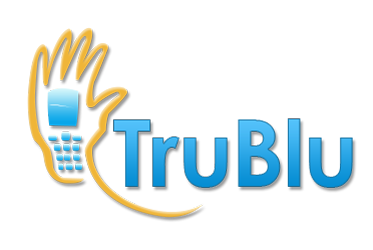Who owns your business website? The anwer may surprise you.
Your branded website is (or should be) your anchor point of your entire online presence. It’s a foundation of everything else and directly tied to your business identity.
First a distinction about what I mean by “branded website.” This is the website domain with your name in it, the website you have your name in the header graphic.
It’s not a keyword-based website built exclusively for search ranking, or a generic non-branded website that your leads generation company owns and uses to send leads to your business. (A lead-gen website is a landing page and an optin box.) In other words, your branded site is your business identity, it’s not a sole purpose page.
 You should own your branded website. Many companies will sell you on the idea that they will create your site super-cheap, register the domain for you and build it on their server. Sounds fantastic, right? They just removed all the obstacles and fears you may have had in having to deal with all those things you’re not familiar with.
You should own your branded website. Many companies will sell you on the idea that they will create your site super-cheap, register the domain for you and build it on their server. Sounds fantastic, right? They just removed all the obstacles and fears you may have had in having to deal with all those things you’re not familiar with.
Besides, you have a business to run, right?
Wrong. Major disaster just waiting to happen.
With your branded website, you need to own every part of it. The domain registration should be in your name, you should have control panel access to the files on the server and you should have admin access to the contents on the website so you can edit and change as you wish. Otherwise, you don’t control your business property, someone else does.
Domain Ownership
The two most common mistakes I see business owners making with their domain registration are as follows:
- Allowing an employee to register your domain in his or her name. This employee will inevitably be a former employee when you discover this mistake, and then you’ll be wrestling with a former employee and a domain registration service who never heard of you to prove that you are the rightful owner of a domain you have no control over.
- Allowing your website developer or “IT guy” to register your domain name in his or her name. Sometimes this happens out of innocent convenience, sometimes it is an intentional way to force you into buying future services.
I have actually registered a domain for a client but it was a RARE occurrence where they have directly asked me to take care of it for them. It’s not something I recommend, and in fact, encourage those business owners to transfer the domain to their account at their earliest convenience.
Aside from any malicious possibilities, what if something befalls your trusted employee or web guy and suddenly you find yourself without your business domain? It’s just not the way to run a business; it’s like a shop owner leaving open the possibility that someone can come in and take over their business one day.
Let’s say you’ve established your business website and you have quite a lot of content on it, links built, it ranks in the search engines… Can you imagine all the time and money invested, and then have to start over from scratch with a new domain?
Web Hosting
Your web hosting company should provide you with complete control over your files. If you have to submit a support ticket to do something simple like change a nameserver or add an email account, find a different webhost. Your webhost should provide a ‘control panel’ at a minmum and allow direct uploads of files via the File Manager in cPanel or via FTP. If they hem and haw about this, it may be that you’re on a “shared hosting” with other sites that are bundled under one parent domain. This is not only dangerous but stupid; you want to make sure your account is the only one on your cPanel, and that you are not an “add-on domain” for someone else.
I realize I’m throwing some jargon at you here — but feel free to copy and paste the above paragraph into a support ticket to your webhost. Webhosts who follow industry standards and best practices will have the right answers for you and will happily provide you with the answers you need.
Your webhosting by itself with an above average quality webhost company should cost less than $10/month. If you’re paying more, it’s possible that you have a bundled service; for example, regular website and database backups, or updates to your WordPress software or plugins on the site… It’s also possible that you don’t have a “normal” webhost but that you’re on a super-fast server like a SSD server or cloud hosting. These are all upgrades, and it’s not uncommon for webhosting to be $39 monthly or more under these circumstances. (TruBlu offers SSD webhosting to existing clients with all of these bundled features, but a fraction of the cost. The other cool thing about TruBlu is that our server is a dedicated server, so the only websites on the server are our clients’ sites. Far better to have a server with several hundred websites vs. a server with over 100,000 — and this is common with the discount webhosts and mega-providers!)
Most webhosting companies that are in the sole business of hosting websites have 24/7 support. This is not really necessary for local business websites but it’s a nice feature to have.
Your webhost should give you unlimited email accounts and very generous bandwidth & storage allotment. A word to the wise about discount webhosts like Hostgator: their “unlimited” bandwidth is not really unlimited. And you may be contracted with HostGator without even knowing it because they are one of the largest multimillion-dollar webhosting companies in the world who have bought up dozens of small webhosts over the years. Those webhosting companies continue to trade under their original brand but are really a HostGator company with HostGator support, servers and more.
EIG actually acquired HostGator this year, so now they are even more “super-sized.” Like fatty fries, they’re not good for you. If you’re wondering if your company is EIG-owned, see this list here. And you can see a list of the 10 Worst Webhosts here http://webdesign.about.com/od/findahost/tp/worst_web_hosts.htm
Summary
In a world of Facebook, Pinterest, Youtube, Google+, LinkedIn, Instagram and others, they are in control of the content we post and the channel we publish. These properties are part of the essential authority-building and brand-building resources you have for your business online. But at the end of the day, you are giving up your intellectual property in order to participate in their licensed platforms. They are a means to an end for your business, but we know that those accounts could be shut down at a moment’s notice and we could lose those branding portals overnight.
Your branded businesses website is the only web property where you have ownership. Make sure you do, in fact, own it.
If you’d like more information about website ownership or quality web hosting, please contact me to discuss your present circumstances and how to make improvements.



